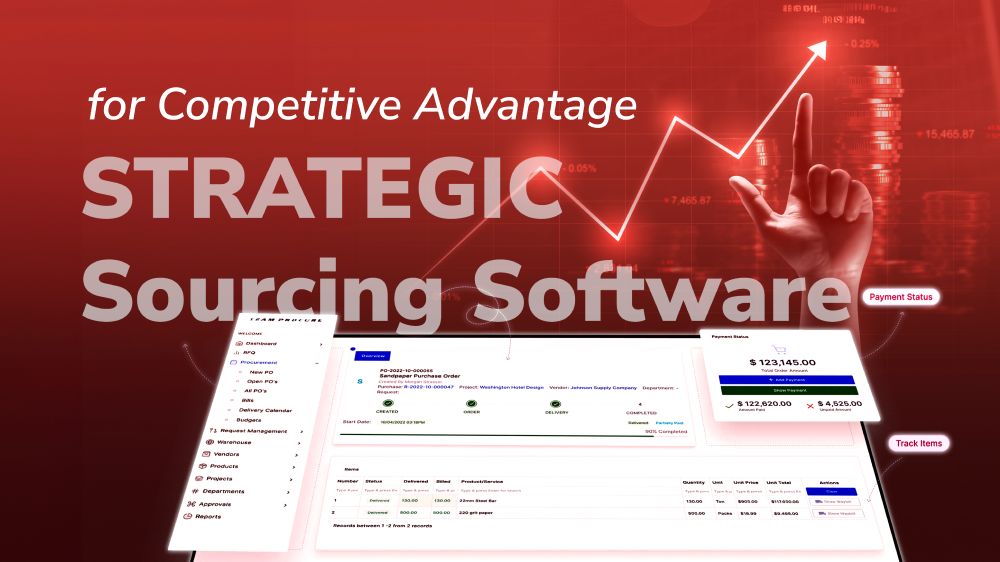
What You Should Know About the Strategies of Outsourcing Software Development

Content Map
More chaptersOutsourcing services have been a “savior” in various industries since they provide the service-buyers with just the external resources they need in order to tend to their businesses and operations while facilitating cost savings and securing quality outcomes. In the software development context, outsourcing once again is declared an optimal option for those businesses that seek external parties to work on their software development projects and reap the competitive advantages it promises. The facts and statistics about outsourcing must have made us eye-wide open.
At present, the software development outsourcing market has become busy now more than ever before when a non-stop rising number of all-sized companies from different parts of the world, including startups and SMBs, are heading to the prevalent IT outsourcing destinations to have their IT needs to be taken care of by third-party companies. Otherwise, some choose to set up offshore development centers to take control of the entire process. This results in the surge of IT outsourcing services providers who are falling over one another to get a sizable piece of the big pie.
As the competition among IT outsourcing service providers is getting tough, it is essential for businesses that are looking for software development assistance to be more cautious and circumspect when choosing their ideal provider. This is where having an effective strategy comes in handy, as it can help you make an informed decision and avoid ending up with a company that is not a good fit for your business. As for any important decision, you always need a well-composed plan if you would like to make it to the top.
What Is Meant by Outsourcing Strategy?
An outsourcing strategy plays the role of a deliberate plan in which a company delegates a third-party service provider to handle certain IT-enabled business processes, perform certain tasks of a software development lifecycle, or even certain projects. Outsourcing strategies may vary from one company to another, but they all share the common goal of achieving specific business objectives while minimizing risks and maximizing quality and cost-effectiveness by leveraging outsourced resources.
Having a Strategic Outsourcing Plan Benefits Your Software Development Project
Are outsourcing strategies a little bit overrated? Do we just simply need to outsource certain tasks that we are incapable of handling with internal resources? It is somehow true but not completely accurate. Depending on the overall goals and particular requirements, businesses will take different approaches to software outsourcing. However, partnering up with outsourcing companies does bring value and benefits only if it is implemented in the right way. And without a solid plan, there is only a slight opportunity to make a go of your outsourcing. If you still doubt the role of a strategic outsourcing plan or tend to overlook it, looking at how it can contribute to the success of your software outsourcing project definitely makes you reconsider it.
Cost-effective
The core value when companies outsource their human resources and IT needs to third-party providers is to achieve what they crave but with less spending. An outsourcing vendor with a good reputation can surely help you save money as you only pay as you use without worrying about the overhead costs. But only after you have a strategy by your side. With every detail of your project listed on paper in bullet points, you can easily overview the whole picture of outsourcing costs and adjust where necessary to ensure there will be no hidden costs or wastes, and the money is spent rightfully. Based on the plan, you can make use better of your own resources and only outsource what is needed.
Avoid Taking the Wrong Moves
Like having a compass in hand when you go on a long journey, an outsourcing strategy is also valuable guidance that helps you and your team avoid making wrong moves or going in the wrong direction. This may sound exaggerated, but once you have experienced the consequences of making an uninformed decision when outsourcing, you will definitely see it from our perspective. Trying to fix a wrong move often leads to more expenditure and lost time, as well as damaged relationships with both customers and service providers. But if you have made a detailed plan before starting your project, this would never be something for you to worry about. All you need is just sit back and relax while seeing the big picture of your project being carried out flawlessly by your outsourcing vendor under your supervision.
Estimate Risks & Make Preparations
Obviously, it is much easier to identify and assess risks commonly occurring during the software development process when you have a strategic plan than when you don’t. Right from the start, you can sit down with your in-house team and your outsourcing vendor to work on preventions for potential issues as well as their workarounds. As a result, your project can progress smoothly without significant problems or delays.
Good Communication & Seamless Coordination
With all essential details of a project thoroughly planned out, you can make it clear who will be responsible for what tasks and activities. By having a written agreement with specific roles and responsibilities assigned to each party, you can effectively manage the expectations and ensure that everyone knows what they are expected to do, when they are supposed to do it and how they should do it. In other words, this will help you create transparency and accountability within the project team and keep everybody on the same page. If done well, there will be no room for ambiguity, misunderstanding, miscommunication, and conflicts to happen during the development lifecycle and jeopardize your project.
Commit to Deadlines
In such a particular industry as information technology, time to market is the key to success. When an IT company outsources its project to a third-party provider, if it can keep the turnaround time short and deliver a fully-fledged product to the market in a timely manner before its rivals, they have a higher chance of dominating the market. Therefore, sticking to a plan with a detailed timeline and roadmaps will remind your team and the outsourcing company you are working with of the urgency as well as what they should do next to meet the deadlines one by one until the project is completed. This way, everyone stays focused and motivated to do their jobs more efficiently and avoid potential delays that can lead to a late rollout.
Quality Control
A competitive advantage when having an outsourcing strategy is that you will be able to make sure that the deliverables are closest to the quality they expect in the initial plan. You know what they say, “If you fail to plan, you plan to fail.” The same rule applies to quality assurance when it comes to software development outsourcing. By being equipped with a solid strategy, you unhesitatingly know the right points to head to and how the project should be conducted accordingly. The outsourcing strategies now play the role of a checklist for quality standards so that you and your team can refine the product till it meets the requirements and offers the best customer experience possible. Besides, it also allows you to put your foot down when it comes to any unqualified work delivered by the outsourcing vendor and ensures that all issues will be promptly resolved before they cause further problems.
Remember the Big Fives to Build a Successful Outsourcing Strategy for Your Software Development Project
It is better to be prepared than sorry, so make sure you have a strategy before outsourcing to a third-party provider. Basically, building an outsourcing strategy does not sound too complicated, but crafting a winning one is another hand. Unfortunately, there will be no one-size-fits-all format for all businesses. The procedure from brainstorming to finalizing a plan will vary case by case. We are not going to guide you through this step by step; instead, some pieces of advice should be more practically helpful for you. So, keep these in mind.

Decide When to Outsource
Choosing the right time to do something always matters, and it is true in the case of outsourcing too. How can you tell if it is the right time to outsource your IT needs or not? Each IT company will experience different pain points, so their decisions shall be made upon different cases as well:
- When you would like to concentrate on your business’s core activities.
- When your in-house team is overloaded with tasks and projects.
- When the required expertise falls out of the scope of your in-house team.
- When you are short of the necessary resources or budget to build an internal team.
- When you have a short-term project or campaign.
- When you would like to enter a new market or launch a new product/service.
- When your budget is limited and you would like to save on costs.
- Etc.
If you notice these signs, then perhaps it must be the perfect time to ask for a helping hand outside.
Decide What to Outsource
Of course, you need to know which parts of your business or project are worth outsourcing. This will help you avoid the risks of entrusting your entire business to a third-party provider and ending up with a disappointing result. Instead of managing to do everything at once, take it one step at a time, starting with the non-core or ancillary tasks first. For example, if the time-consuming business operation tasks are your problem, then you should consider business process outsourcing. Or, if you need help with a specific project or campaign, then project-based outsourcing can be your savory. The current software outsourcing services are flexible and can be adjusted to your business’s actual needs. Therefore, no matter if it’s small businesses or big companies, there will always be suitable types of outsourcing contracts.
Decide How to Outsource
Next, you should choose an IT outsourcing model that best suits your requirements. There are three most popular outsourcing plans, including:
- IT Staff Augmentation: You will work with an outsourcing provider to supplement your in-house team with extra skills and knowledge so that they can complete their tasks more efficiently. The additional staff can be either project-based or long-term, depending on your needs.
- Dedicated Team: You will set up a separate, remote team of developers who will work solely on your project under your management. This model is a lot more suitable for companies that need more control over their projects and want to involve in the development process.
- Project-based Model: You will outsource a specific project or campaign to an external provider, and they will be responsible for its success. This type of outsourcing is beneficial when you don’t have the internal resources or expertise to complete a project.
Each model has its own advantages, so it is essential to carefully consider your needs and objectives before making a decision.
Decide Where to Outsource
The outsourcing market is getting hotter with a lot more alternative IT outsourcing destinations. And Vietnam is one of the best options when you consider hiring a third-party service provider to work on your project. Vietnam has been gaining popularity as the new IT hotspot in recent years, thanks to its large pool of IT talents, high-quality services, and reasonable rates. Moreover, the country has been making great strides in its economic and political stability, which makes it an even more appealing destination for outsourcing software development needs. If you are looking for a reliable and cost-effective outsourcing partner, Vietnam should definitely be on your radar.
Decide Outsource to Whom
Now, it is high time to filter “gem from stones.” By that, we mean finding the right IT partner who is capable of handling your project and meeting your expectations. Once you have got the list of potential providers, it is a must to evaluate and compare them to tell which one is the best fit for your business. Make sure you do your due diligence and choose a reputable and experienced provider who can meet your expectations and deliver quality results.
Nothing ventured, nothing gained, but make sure that a well-prepared strategy is put in place before you start outsourcing to any software development company. Good luck!






